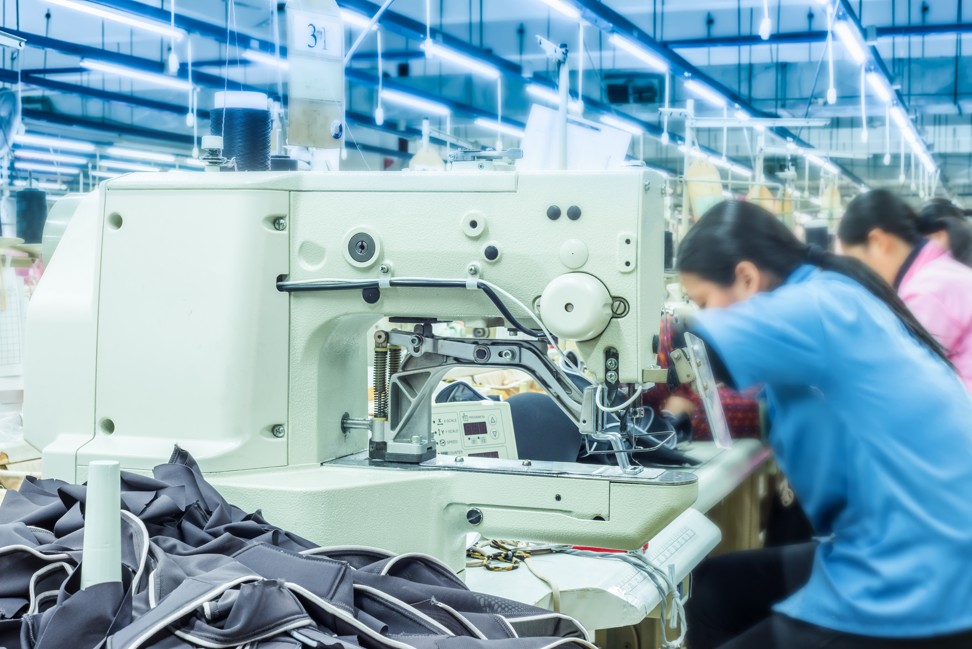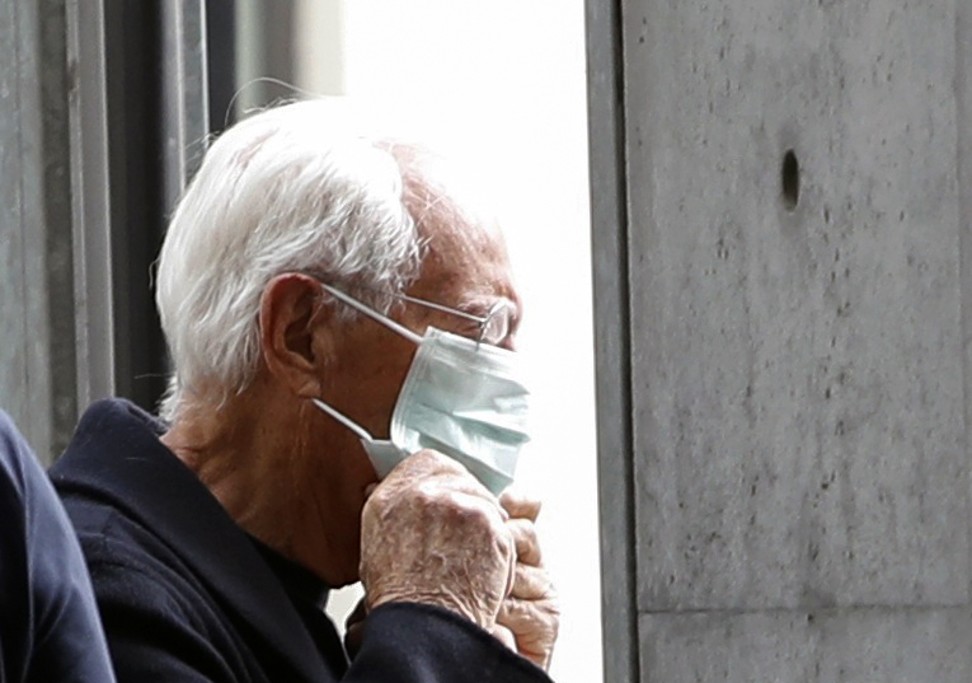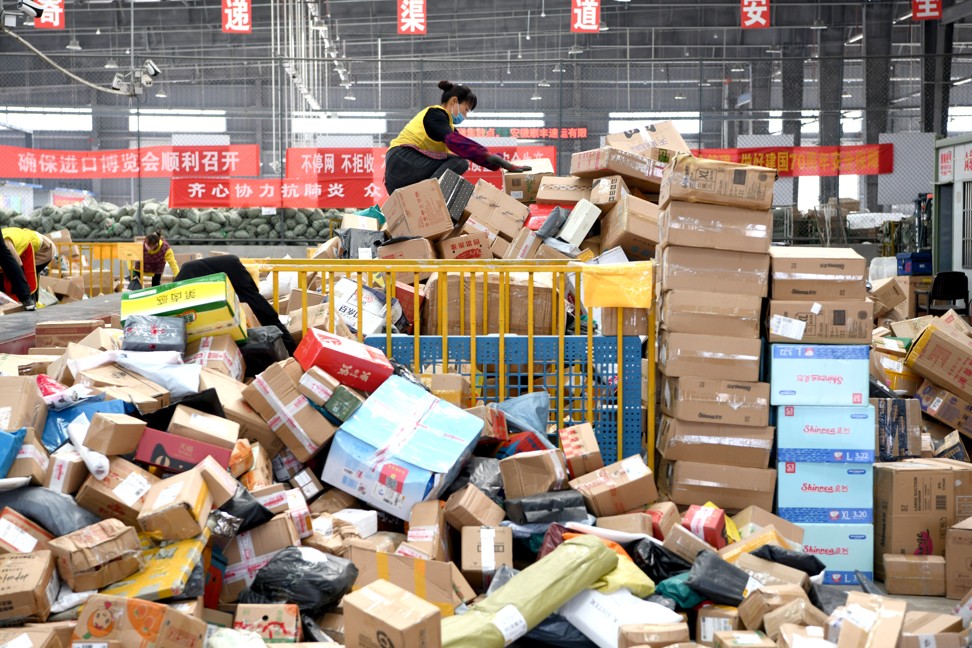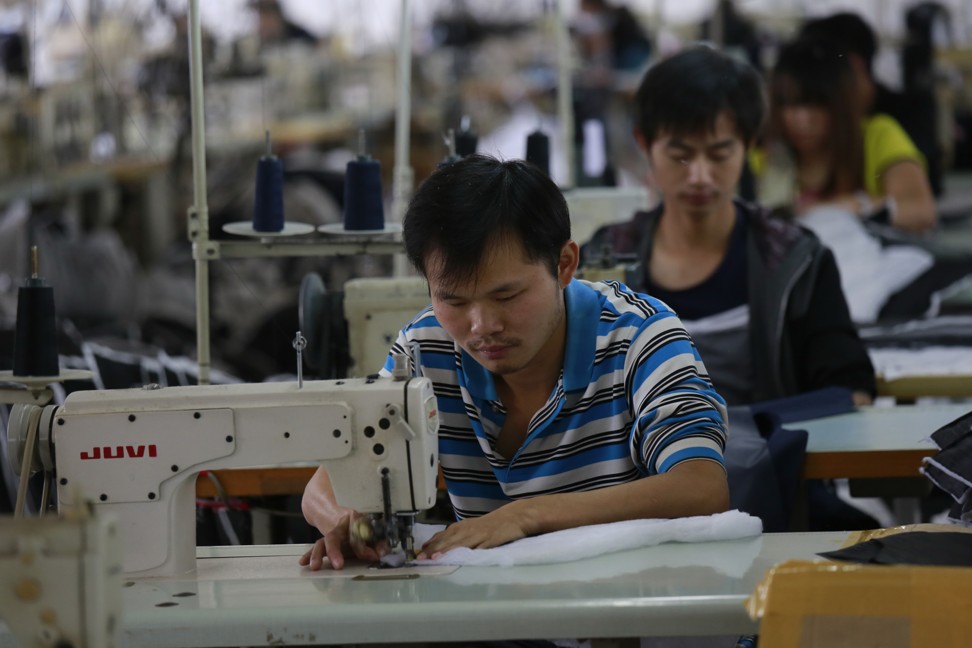
How the coronavirus is affecting global fashion production, from high street brands to luxury labels
- Companies and designers with factories in China are facing huge disruption to their supply chains as people are unable to return to work
- Brands such as Burberry, LVMH, Kering and Victoria Beckham – all of whom manufacture partly in China – could struggle to release summer collections

Politics have been the bogeyman of European fashion for a few years now.
From the continued uncertainty around Brexit to French strikes and Trump’s arbitrary new tariff system for goods made in the EU, European brands manufacturing at home have been plagued by bad news. In an unexpected plot twist, though, it is the onslaught of the coronavirus that is hitting any fashion company with a supply chain wholly or partly in China with unexpected force.
The loss of human life is, of course, the biggest tragedy of the coronavirus. However, as fashion brands such as Burberry and Moncler, and entire conglomerates like Kering, are coming to terms with what will amount to months of disruption, the industry is bracing itself for serious long-term complications.
The National Chamber for Italian Fashion has said that their “optimistic” estimate is that Italian exports will fall by at least €100 million (US$109 million) in the first quarter for the year and €230 million “in the event of a prolonged crisis”. Burberry has stated that it expects the impact of the virus to be far more severe than the Hong Kong protests.

Gerhard Flatz, the Austrian managing director at high-end performance-wear specialist KTC, says entire brands and even factories are in jeopardy.
Flatz’s KTC factory is based out of Guangdong and makes goods for a number of European activewear brands including Engelbert Strauss and Mammut. It has been closed since Lunar New Year and has no immediate plans to reopen.
“We made the decision not to open again because the situation was unclear and we couldn’t guarantee the safety of our employees,” he explains.
“Since then, the government has introduced a new law that insists we have a stockpile of two face masks per factory worker a day if we want to reopen. Unfortunately, that is easier said than done, as China’s biggest face mask factory is located in Wuhan.”

The irony of this aside, it means even workers in relatively unaffected areas of China will be unable to clock in. Flatz noted that throughout this period, factories such as his will pay their workers’ wages in full, and won’t be covered by insurance.
“It is going to have a massive impact on the global fashion industry, far more than just in China,” he says, on the phone from Austria, where he will stay until the immediate health threat passes.
“Most people in our industry are heavily banked and have put down prepayments for raw materials. When something like this happens, you have a deficit that could be severe and lead to permanent closures.”
Fashion month in Europe is now well underway, and it is feeling the rippling effects of the virus. It was widely decided that Chinese buyers and editors, including Angelica Cheung from Vogue China, should sit out this round of European shows.
During Milan Fashion Week, Giorgio Armani cancelled his show in response to an outbreak of the virus in northern Italy, opting to live-stream it behind closed doors instead. Masha Ma, Uma Wang, Jarel Zhang, Calvin Luo and Maison Mai have also cancelled their shows at Paris Fashion Week – in certain cases because collections could not be finished in time.

Backstage on the day of her show in London, Victoria Beckham admitted the virus was sparking concern for her as both an employer and businesswoman. “I think everybody’s worried by it,” she said. “I think it has affected business.”
She is right to be concerned, and not only about the immediate sales slump from China. The Chinese may be the biggest global consumer of luxury goods but, given that China is both the factory and the face of luxury fashion, the disruption to the supply chain poses a far greater danger than a temporary loss of sales.
Burberry, LVMH, Kering and Victoria Beckham – all of whom manufacture partly in China – are going to struggle to release upcoming summer collections if factories remain closed for much longer.
“If this virus [outbreak] is elongated, then all bets are off and we are entering into unique territory,” says Matt Priest, the CEO and president of Footwear Distributors and Retailers.
“For fast fashion, where movement of new product is the bread and butter, the question comes down to how companies adapt to this. Publicly traded companies have alerted the public to the compression in the supply chain, but Western customers won’t be expecting a delay in-store come spring or summer.”

The combination of Trump’s trade war with China, rising Chinese labour costs and local manufacturers’ increasing reluctance to produce low-cost goods has prompted the mass-market sourcing caravan to move out of China. H&M has been growing its base in Cambodia and Marks & Spencer has moved most of its production to Vietnam.
However, it hasn’t helped them much, as even these factories are heavily affected by the virus. In Vietnam and Cambodia, manufacturers rely on raw material from China, which they aren’t able to get across the border, and many factories in Vietnam are also run by Chinese nationals, who have been banned from entering the country.
Even when Chinese factories are operating, getting goods out is proving difficult, as container ships and air freight lines are operating at reduced capacity to protect the health of workers.
Combined, this means the likelihood that European retailers run out of stock is high, although predicting when and for which items is more difficult.

“There will definitely be delays in the West, but it remains to be seen how long these delays will be,” says Priest. “If goods are not in production now, I don’t know how they’ll make it to stores and consumers any time soon.”
Flatz predicts that European brands will try to plaster over the problem by relabelling unsold stock from previous collections and hoping that consumers don’t cotton on. “Western consumers won’t feel the bite as much, as there will be goods in store,” he says.
“In Europe, sales are a disaster anyway, so relaunching an old collection shouldn’t cause too many problems.”
With the virus coming hot on the heels of a few years of major political upheaval, international brands are praying that when it comes to sourcing, bad news doesn’t come in threes.
“It has been two gut punches,” says Priest, referring to the political disruption and the coronavirus. “One was man-made and one was natural, but both are worse than anything I can remember. My question is, once the dust settles, will sourcing in China ever retain the same allure?”
Right now, nobody quite knows.